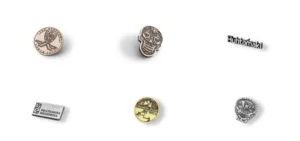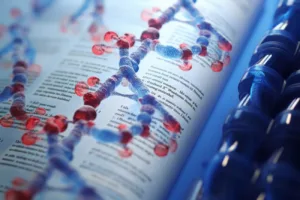Koilonychie, also known as „spoon nails,“ is a nail disorder that can have various underlying causes. This condition can affect the appearance and health of your nails, and it’s important to recognize its symptoms, causes, and potential treatments. In this article, we will delve into the world of koilonychie to help you better understand this condition.
What Is Koilonychie?
Koilonychie is a nail disorder characterized by abnormally shaped nails that appear to be scooped out or concave, resembling a spoon. Typically, this condition affects one or more fingernails, but it can also occur in toenails. The severity of koilonychie can vary, with some individuals experiencing mild spooning, while others may have more pronounced deformities.
Symptoms of koilonychie
Identifying koilonychie is essential for early diagnosis and management. Common symptoms of koilonychie include:
- Concave or spoon-shaped nails
- Brittle or thin nails
- Nails that are prone to cracking or splitting
- Discoloration of the nails
- Pain or discomfort around the nails
- Slow nail growth
If you notice any of these symptoms, it’s advisable to seek medical attention to determine the underlying cause and receive appropriate treatment.
Causes of koilonychie
Koilonychie can be a result of various underlying factors and medical conditions. Some of the common causes include:
| Cause | Description |
|---|---|
| Iron Deficiency Anemia | One of the leading causes of koilonychie is iron deficiency anemia, which affects the body’s ability to produce healthy nails. |
| Trauma | Injury to the nail matrix, such as repeated trauma or the use of aggressive nail tools, can lead to nail deformities. |
| Fungal Infections | Fungal infections of the nails can result in changes in nail texture and shape, including spooning. |
| Systemic Diseases | Certain systemic diseases, like hypothyroidism and hemochromatosis, can manifest with koilonychie as a symptom. |
Understanding the underlying cause is crucial for effective treatment and management of koilonychie. Your healthcare provider may perform tests to identify the specific cause in your case.
Treatment options
The treatment of koilonychie depends on its underlying cause. Here are some common treatment approaches:
- Iron Supplements: If iron deficiency anemia is the cause, iron supplements may be prescribed to improve nail health.
- Topical Medications: For fungal infections, antifungal nail lacquers or creams may be recommended.
- Nail Protection: Avoiding trauma and using gentle nail care practices can help prevent further damage.
- Managing Underlying Conditions: Treating systemic diseases can address koilonychie as a symptom.
Your healthcare provider will tailor the treatment plan to your specific needs based on the underlying cause and the severity of your condition.
Is koilonychie a serious condition?
Koilonychie itself is not a serious condition, but it can be a sign of underlying health issues. It’s important to consult a healthcare professional for a proper diagnosis and treatment.
Can I prevent koilonychie?
While you may not always prevent koilonychie, you can reduce the risk by practicing good nail care, avoiding trauma to the nails, and maintaining a balanced diet rich in essential nutrients.
How long does it take to see improvement with treatment?
The timeline for improvement in koilonychie varies depending on the underlying cause and the chosen treatment method. It’s essential to follow your healthcare provider’s recommendations and be patient with the process.
Can koilonychie come back after treatment?
In some cases, koilonychie may recur if the underlying cause is not adequately managed. Regular follow-ups with your healthcare provider can help prevent recurrence.
Is cosmetic nail surgery an option for severe cases?
In severe cases of koilonychie, cosmetic nail surgery may be considered to reshape the nails. However, this is typically a last resort when other treatment options have been exhausted.
Understanding koilonychie and its causes is the first step toward effective management and treatment. If you suspect you have this condition, don’t hesitate to seek medical advice to ensure the health and beauty of your nails.
Viz také:






